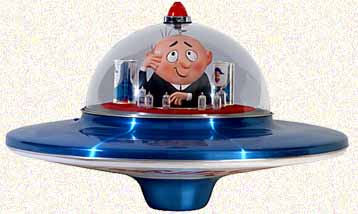|
|
 The woman in the summer dress asking a curious question about Avignon continues:
The woman in the summer dress asking a curious question about Avignon continues:
"I had heard, from friends I no longer trust, that were I to bring a question about Avignon to you," her voice dropped to a husky whisper, "you would supply me... with... new eyes." New eyes,
 Not everyone would.
Medical insurance denied coverage. But some people needed them: they had seen too much
or too little, or been afraid of what they had seen while young.
Some real freaks just wanted a different color.
Not everyone would.
Medical insurance denied coverage. But some people needed them: they had seen too much
or too little, or been afraid of what they had seen while young.
Some real freaks just wanted a different color.
"You heard wrong," Saul said, looking at her with obvious disgust. "Oh," turning away with a sad voice. But then she looked up. "What if I said it over and over?" "Said what?" "Avignon avignon avignon avig --" Saul has many rages. Once when he was five he spent four months attempting to bite his teeth, only giving up when his father suggested licking his tongue would taste better. Repetition in others drives him batty.
"MY LORD, WOMAN!"
he roared, rattling the shop, grimacing, smashing a splinter clear
through the web of two fingers. The birds didn't move. The cat & didn't move.
"gnon avignon avignon!" Unafraid, her eyes lit up, and her
poison eyebrows rose in triumph.
Saul shuddered. His massive frame seemed to deflate.
True enough these days,
he thinks, what with everything all solid-state and microchips.
His father used to carry around paper bags full of
ten-cent tubes.
Lorraine is the technical one; Harry's college major was finance. Concerning
electronics, he knows only enough to be dangerous.
Yet he lies there unable to ignore the little sonic glitch. The problem sticks
in his mind like a stubborn lump in the throat.
What Does It Enhance Or Intensify? What Does It Render Obsolete
Or Displace? What Does It Retrieve That Was Previously Obsolesced?
What Does It Produce Or Become When Pressed To An Extreme?
What could make their TV set act this way? Harry tries to think what his wife would
say, aside from,"It's probably nothing."
"A short in transformer," he imagines her saying, "creating a freak potential that
discharges through the audio channel after the power is cut." Plausible?
Stick a screwdriver in the right place and find out.
He finds himself
watching the television:
He can't say if this is normal or symptomatic. He's not even sure what he's seeing.
A few loose electrons bouncing around the phosphor dots. Maybe some of those
"quantum fluctuations" from Nova or Star Trek. Neutrinos.
Baryon particles. Gamma rays.
Or it's all in his head: maybe the "glow" is just a trick of the eyes, something in the
retina or visual cortex. He remembers the word habituation from an old
psychology course, though it's not a term he could define.
Boris, this is my old friend... Oh; heh... Natasha... [grin]
How could they not become an item? It was a match made in
pop culture
He on the other hand was some sort of Scots-Welsh-Luso-Yankee whose
pink-thinking
parents got some perverse ideas about boys' names during the
Eisenhower regime. His older brother, christened Igor, was now with the court's
permission called Spike.
Jay Ward cartoons aside, what really brought them together was flying.
 |
|
|